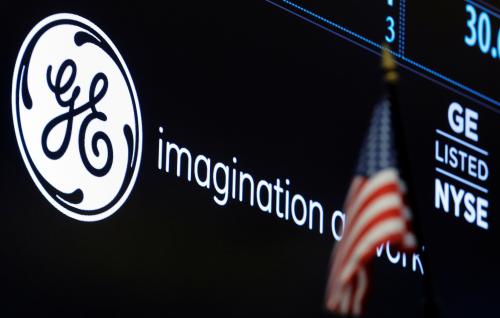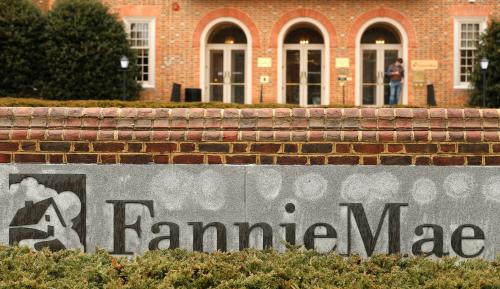This article originally appeared in MarketWatch on August 13, 2018.
Elon Musk is a brilliant entrepreneur and visionary, but the Tesla CEO’s vague proposal to take Tesla private at $420 a share is a sham.
The electric car company is struggling to service more than $10 billion of debt and make forecasted capital investments. Tesla TSLA, +0.39 percent is not likely to have anywhere near the free cash flow needed to support another $24 billion in debt to buy out even one-third of its current shareholders.
In 2017, Tesla generated $11.8 billion in revenue, but had negative cash flow of roughly $3.5 billion. That cash-burn hasn’t abated; during the first half of 2018, the company’s negative cash flow amounted to $1.8 billion.
Of course, Musk would argue that Tesla will soon become profitable by stepping up production of its Model 3 cars to 5,000 per week this fall, and to 10,000 per week by the end of 2018. But Musk’s predictions of car production have been frequently wrong.
Pile on top of these funding needs an additional $24 billion in debt to buy out one third of its shareholders — if Tesla is valued at $72 billion, as suggested by Musk. In theory, such a going-private transaction might be possible: Musk and insiders own 25 percent of the company, In addition, more than 40 percent of its shares could be retained by a relatively small group of institutional investors, if they would be willing to accept a severe reduction in liquidity when Telsa went private.
But in reality, who would loan Tesla another $24 billion?
The SEC is now investigating Musk’s assertion in his tweet on Aug. 7 of “Funding secure” for the going-private transaction. This assertion seems dubious since the largest Wall Street banks, such as JPMorgan and Citibank, were not aware of the transaction in advance of Musk’s tweet.
Moreover, Tesla’s junk bonds yielded above 7 percent in July, after being downgraded to Caa1 by Moody’s. If Tesla issued an additional $24 billion in bonds, those would have to pay a significantly higher interest rate — perhaps as high as 9 percent given the company’s iffy cash flow and heavy debt service obligations.
Indeed, Tesla’s creditors — banks and bond holders — should be worried about whether Tesla can pay off its current debt, given its shaky production history, negative cash flow, and sizeable cap-ex needs. They should be even more worried if Tesla takes on another $24 billion in debt.
At a $72 billion valuation, Tesla would be more than twice the size of the next biggest leveraged buyout in history. That leveraged buyout—$31.8 billion for TXU, a large Texas utility—resulted in bankruptcy in 2014, seven years after the buyout.
Complicating Musk’s vision is that Congress at the end of 2017 made leveraged buyouts less attractive by setting a new limit on corporate tax deductions for interest — just 30 percent of a company’s earnings before interest, taxes, depreciation and amortization.
Why is Musk putting forth the idea of a going-private transaction with such dim prospects?
So why is Musk putting forth the idea of a going-private transaction with such dim prospects?
After his tweet, Tesla circulated an email explaining his rationale for the proposed transaction. Musk maintains that, as a public company, Tesla is forced to take a short-term approach; by going private, Tesla will be able to focus on its “long term mission.”
While there are legitimate concerns about the short-term pressures on public companies, Musk’s motivation is disingenuous as applied to Tesla. Despite never having made a penny of profit, Tesla is valued above $60 billion — rivaling the market valuation of both Ford Motor Co. F, +1.43 percent and General Motors Co.GM, +0.97 percent. Why? Because many investors are willing to support Musk’s long-term vision for electric cars and overlook its current results.
In his email, Musk also mentions his dislike of short-sellers, who have bet heavily against what they believe is the unrealistically high price of Tesla’s stock. In fact, the total short interest in Tesla is one of the highest of any stock in the world. After Musk’s tweet, the price of Tesla stock jumped 11 percent — imposing huge losses on the shorts.
In my view, Musk’s vague plan for taking Tesla private is a pipe dream. I am deeply skeptical that Tesla will ever go private. Musk’s stated rationale for this proposal seems bogus, but his tweet did succeed in achieving one of his objectives — punishing short-sellers of Tesla stock — at least for now.
Robert Pozen has been a nonresident senior fellow at Brookings since 2010. In 2015, he generously committed to endow the Director’s Chair for the Urban-Brookings Tax Policy Center. Until 2010, Pozen was executive chairman of MFS Investment Management and, before 2002, served in various positions at Fidelity Investments. He did not receive financial support from any firm or person for this article or from any firm or person with a financial or political interest in this article. He is currently not an officer, director, or board member of any organization with an interest in this article.
The Brookings Institution is committed to quality, independence, and impact.
We are supported by a diverse array of funders. In line with our values and policies, each Brookings publication represents the sole views of its author(s).






Commentary
Op-edElon Musk’s plan to take Tesla private is a pipe dream
August 14, 2018